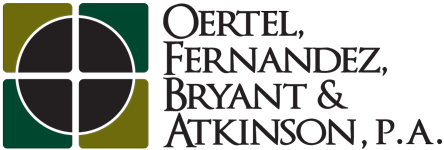Professional Licensure Discipline: Our firm has assisted many individuals in licensure disciplinary proceedings, including physicians, nurses, general contractors, electrical contractors, and educators. Each regulated profession is subject to disciplinary action for violations of the standards of that particular profession. For instance, under Chapters 456 and 458, Florida Statutes, medical doctors may be disciplined for a number of offenses, including deviating from the standard of care, conducting a procedure on the wrong patient, leaving a foreign body inside of a patient, or for substance abuse. Similarly, under Chapters 455 and 489, Florida Statutes, general contractors may be disciplined for a number of offenses, including abandoning a jobsite, operating without a qualifying agent 60 days following the termination the qualifying agent, and making false representations. Each agency has a list of potential disciplinary sanctions that it may impose, including a monetary penalty or additional education. For serious violations, the agency may seek to suspend or revoke the professional’s license entirely. Generally, the disciplinary process is started when the state agency receives a complaint about a particular licensee. The state agency then has an investigator gather facts about the allegations, including interviews with witnesses and obtaining records. Usually, the agency investigator is required to contact the licensee to discuss the complaint and request a statement, and the licensee is provided a certain number of days to provide a response to the investigation.
After the investigation is complete, the investigator sends the investigative file to the agency’s prosecuting attorney’s office, which will then review the file and recommend to issue an Administrative Complaint or dismiss the case. Regarding most professional licenses, the complaint, investigative file, and proposed Administrative Complaint is sent to a probable cause panel, which is comprised of a few members of the profession’s board. The probable cause panel will also consider any written statement by the licensee, if the licensee has elected to submit a response to the investigation or proposed Administrative Complaint. After reviewing the file, the probable cause panel then determines whether there is “probable cause” to move forward with the Administrative Complaint. If so, the prosecutor will file the Administrative Complaint to seek a disciplinary sanction against the licensee.
Once the licensee is served with the Administrative Complaint, the licensee has an imminent deadline to contest the allegations and seek a formal hearing, or to not contest the allegations and request an informal hearing. If the licensee does not respond at all, the agency may consider the licensee to have “waived” his or her rights, and the agency likely will seek discipline on its own accord and without regard to any later protests by the licensee. Should a licensee choose to dispute the allegations of the Administrative Complaint, the licensee usually has the ability to settle the dispute with mutually agreeable terms. Often, the settlement terms are presented to the professional board for review and final approval.
Should the licensee and agency fail to reach a settlement, the agency will refer the case to the Division of Administrative Hearings (“DOAH”) for an evidentiary hearing, similar to a trial in a court of law. The case will be heard before an impartial Administrative Law Judge (“ALJ”), who presides over the proceedings in the same manner as a trial judge. After the trial concludes, each party may submit a “Proposed Recommended Order,” which summarizes the points of law and fact for the ALJ’s consideration. The ALJ will then issue his or her “Recommended Order,” which will recommend to dismiss the Administrative Complaint or recommend discipline, along with the proposed sanction.
After the ALJ issues his or her Recommended Order, the case goes back before the profession’s board for entry of a Final Order. The board has some authority to change the ALJ’s Recommended Order. In particular, the board may alter the ALJ’s conclusions of law. For instance, due to its expertise in the field of medicine, the Board of Medicine may be able to modify an ALJ’s conclusion about what type of action constitutes “malpractice.” No board, however, may change an ALJ’s findings of fact unless the finding of fact is not supported by any evidence. The board may also modify an ALJ’s proposed sanction under some circumstances.
Should the licensee not dispute the allegations in the Administrative Complaint, the agency will conduct an informal hearing. There, the licensee will be allowed to address the particular board and request leniency by showing mitigating circumstances. The board will then impose the sanction it deems appropriate.
If your license is subject to a disciplinary action by any state agency, it may be in your best interest to contact our office as soon as your learn of the disciplinary action so that we can discuss what steps to take to protect your license.
